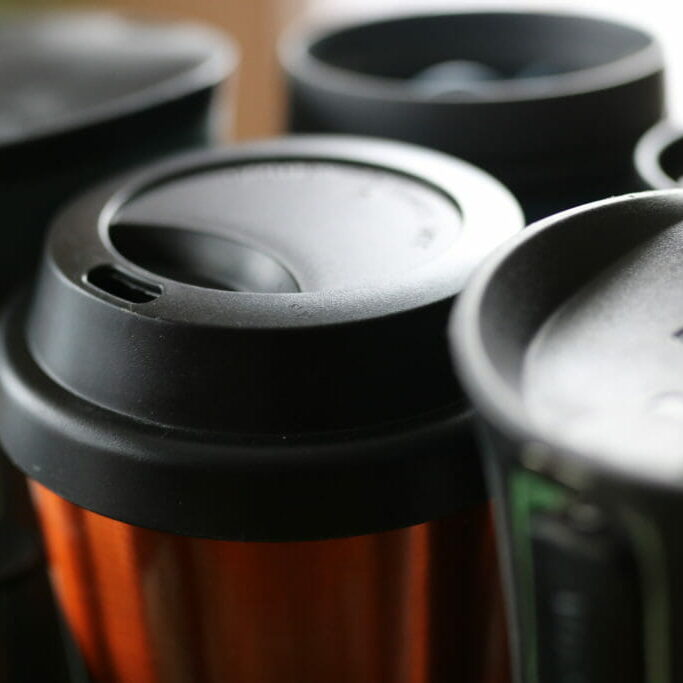
Your pollution makes me sick
Stay eco-conscious during the pandemic
A few days ago, I witnessed an argument in a Second Cup between an employee and a customer who was denied the use of their reusable cup. This incident followed an announcement about a week ago that Starbucks has stopped the use of reusable cups in most of its stores worldwide. Tim Hortons followed suit. Amidst the global panic about COVID-19, our health should remain a priority but that doesn’t mean we should forget our continued environmental impact during the pandemic. What will this event look like for the planet? For our future?
Don’t get me wrong, this is a global health emergency and people have been reacting and dealing with things in their own ways. Apparently, buying toilet paper and hand sanitizer in bulk is one of them. However, thinking about what the waste situation may look like when this has died down, makes me sick (no pun intended).
Standard hygiene protocol
As a former barista, I’ve seen first-hand the waste that one location can make and the sanitary procedures that go along with working in a coffee shop. Even though my store was often only busy at 6 a.m. and during the Halifax tourism season, at least 100 people would come in our doors each day. It is a known protocol that for every person who gets their beverage in a reusable cup, employees aren’t allowed to touch your lid. Instead, your cup will be rinsed in boiling hot water (that burns the skin) and then treated as a normal cup when it gets to the cup line on the bar. However, baristas aren’t required to wash their hands after touching a reusable cup, only after other drinks. If someone carrying COVID-19 hands the barista their reusable cup and the barista proceeds to touch their face, the barista could get sick or spread the virus to other patrons that day. Technically, the barista is supposed to wash their hands every time they touch their face or hair, but I know that not all baristas practice this hygiene rule. Basically, this new temporary rule makes perfect sense.
However, because I worked at the coffee shop for a little over a year, there’s one element to this “no reusable cup” thing that plays in my mind. If a barista has messed up a drink, which happens often, it is a common protocol that they throw away the cup and start a new drink. Personally, I’ve dealt with customers that will order a cappuccino only to turn their noses up every time they’re handed a new drink, saying that it’s too foamy until they are made a latte. What will happen if one of those lovely customers passes back a cup they’ve touched?
The dilemma of complex orders
Another thing that I have learned in my personal experience is that most people who use reusable cups are one of two people: people who are just getting a drip coffee, or people with very personalized orders. The personalized orders are the ones most often messed up. In my experience, I’ve thrown out anywhere between five cups a day in my store, and 10 cups a day in a busier store where I would fill in. It happens, baristas are human, but with all the recent efforts to be more environmentally conscious, there has been more pressure on baristas to be less wasteful. Unfortunately, due to this virus, we are moving backward.
It is important to remember that coffee cups aren’t the only thing that contributes to waste, but the vast increase in toilet paper sales, mass buying of the single-use masks worn by people who aren’t even sick or aren’t part of a culture where it’s considered regular apparel. The people buying an overabundance of toilet paper need to realize how much pollution goes into making it and wasting it. Before there were even confirmed cases in the province, I walked down the street and saw several filter masks or sanitary wipes lying on the ground. The pandemic doesn’t have to encourage pollution.
Although the pandemic doesn’t have to encourage pollution, it may take advantage of it. It is estimated that the health damage inflicted on people by long-term air pollution in cities is likely to increase the death rate from COVID-19. However, In China and Italy, strict confinement measures have led to falls in air pollution as industrial emissions fall. It is emphasized by a U.S. expert that the pandemic should not be seen as good, even if the current environmental impact seems positive, and that the loss of life, income, and treatments are much more severe.
Better safe than sorry, absolutely. Unfortunately, something tells me we will be feeling these effects long after the pandemic is resolved.






